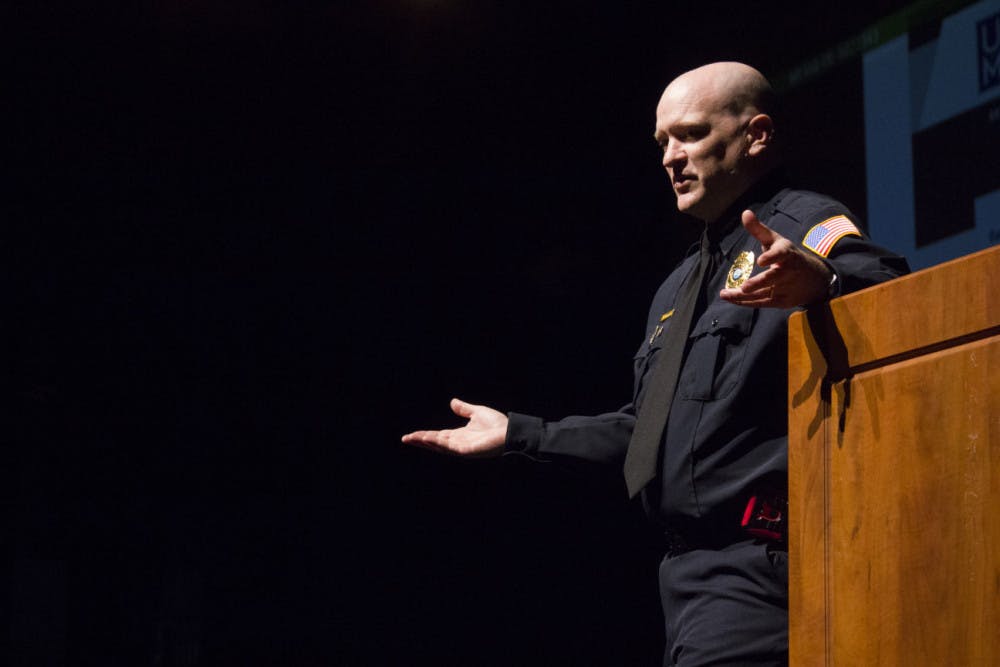Being prepared isn’t being paranoid.

Many students believe that the passing of such legislation would pose “a greater threat to students”, and the only people that could handle active threats are campus police, according to the bill written by Faulk.
“I want to know what I can do to be more aware in the event of a crisis situation,†Iris Ramirez, business management sophomore, said.
Ramirez, along with other students, attended the University’s crisis preparedness seminar Tuesday.
A second seminar will be held Monday from 4:30-5:30 p.m. at the Rose Theatre.
“We’re being a proactive campus that wants to be prepared,†said Arleen Hill, an associate professor of Earth sciences at the University of Memphis.
The sudden interest in university safety measures is not intended to frighten students.

Guns on campus
These seminars are a result of numerous questions from students and faculty members about how the University will respond to a gunman on campus.
Growing concern in shooting preparedness is likely linked to what many feel was a wave of high profile shootings on college campuses across the United States in 2015.
The most deadly shooting —which took place in Umpqua Community College in Oregon —ended with nine killed and nine injured, including the shooter, who committed suicide.
Shootings on college campuses were one of the least common shootings last year, but U of M police and the FBI encouraged students to develop a plan for what to do in a mass shooting.
“We decided across the country that we wanted to do things differently and jump ahead,†said Tom Hassell, special agent in the FBI’s Joint Terrorism Task Force.
Hassell emphasized that being safe until campus police arrive is critical to survival.
“On campus there is a two minute police response time,†Hassell said. “In a matter of 120 seconds you need to think about ‘How can I protect myself? How can I buy time until the police arrive?’ In a matter of two minutes there could be scores of campus police, state police, FBI task force and first responders on the scene.â€
Hassell said students need to be aware of their surroundings no matter where they are at.
“If you’re walking through the parking lot or crossing the street heading to your car, do so with purpose,†Hassell said. “Keep a few keys clinched between your fingers with your hand balled into a fist. If someone were to approach you can easily scratch them across the face, using your keys as a weapon.â€
These seminars do not indicate a specific threat to students; however, they serve as a plan of action for potential crisis events.
“A lot of our faculty were getting questions from students about ‘what should we do if…,’†Bruce Harbor, director of campus police services, said.
Monday’s seminar will include an update by the FBI on national incidents concerning what an “active shooter†event means, a brief demonstration of the Department of Homeland Security’s “Run-Hide- Fight†procedure, university crisis preparedness and efforts, classroom and auditorium preparedness and a question and answer panel.
One of the many safety efforts of campus police services includes installing new locks on classroom doors.
“Over the Christmas break, we had all of the officers go out to look at all of the classroom spaces,†Derrick Myers, assistant chief of police services, said. “We plan on bringing brand new locks in before the fall semester.â€
Another safety initiative simply involves scanning your surroundings and thinking ahead.
“We will continue to deal with emergency preparedness and recovery, given that we do a lot of training,†Harbor said. “We’ve considered every area including the Bursar’s Office along with several other areas that are faculty ran by our faculty and staff.






